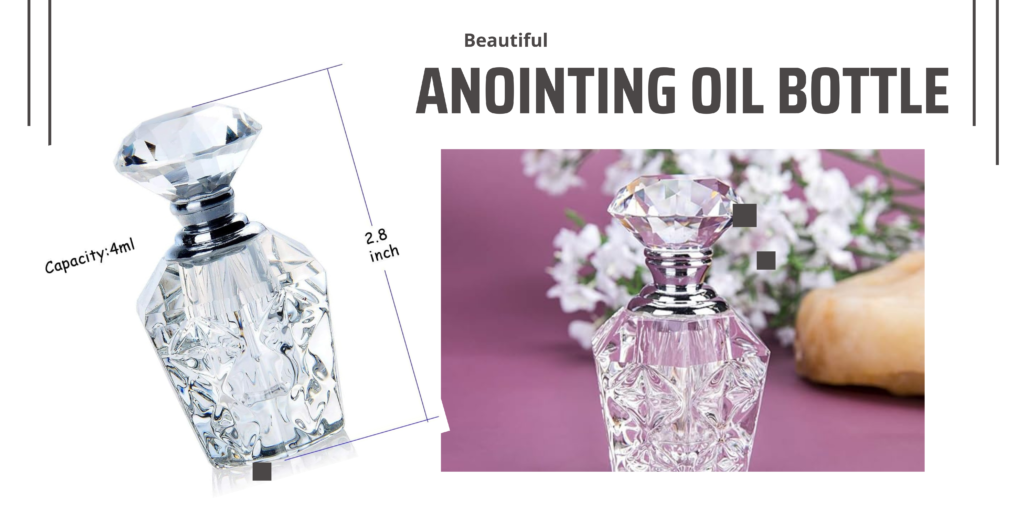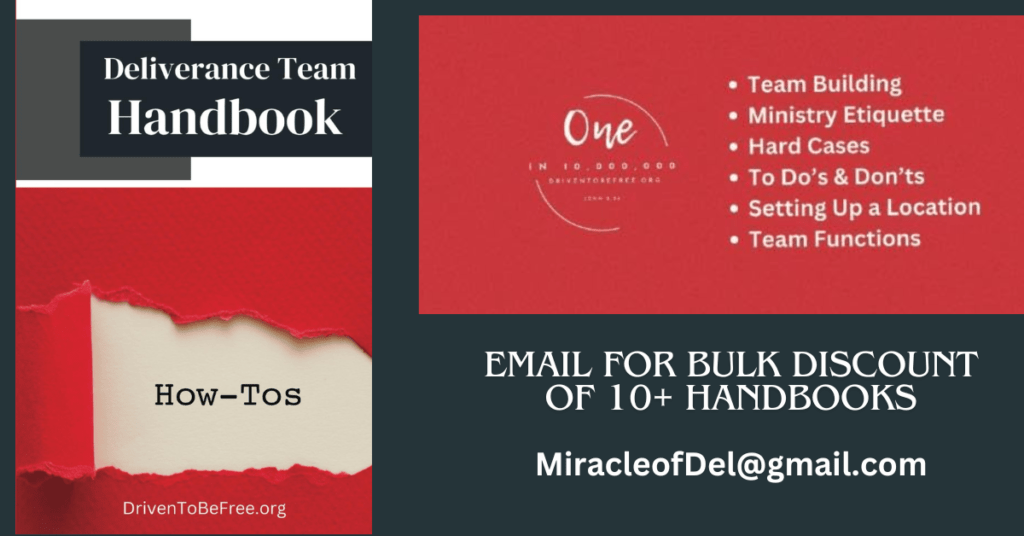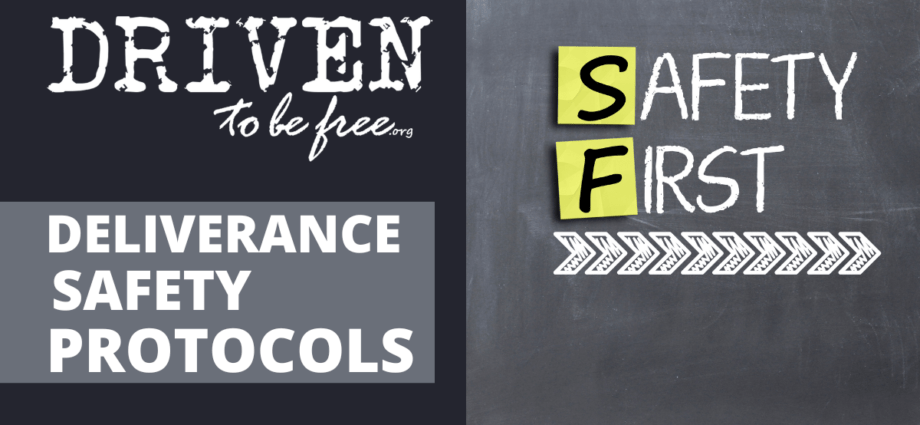The ministry of deliverance is a ministry of miracles. Even so, as ministers, there are some things we can do to help people connect to Jesus without being harmed in the process. Freedom teams should be trained on issues of deliverance safety.
Last month, we published a teams handbook that included some safety protocols. Here some tips we included that every team needs to know:
Safety concerning Allergies
Anointing Oil:
Be aware that some are allergic to scented oils. It’s best to use unscented olive oil. However, if you only have a fragrant oil, ask permission before touching someone with the specialty oil.
Perfume/Cologne:
Consider not wearing perfume or cologne or smelling like smoke when ministering.

Safety & Personal Information
If you are working with someone you do not know well enough that you’d want them at your house, do not give them your personal information. This type of rule may seem like an unnecessary safety protocol, but when dealing with broken, confused, or demonized persons, it’s best to have policies that protect those wanting to help.
In addition, be careful when adding people to your social media accounts without knowing them. Personal photos, family, and close friends may become targets for spam, scams, and unwanted influence.

Deliverance Safety & Zeal
When praying, do not push, pull, or apply pressure to the person. It can be exciting to pray, but be mindful that no one wants to feel coerced or forced.
Sometimes, while manifesting an unclean spirit, a person may perceive being touched or pushed, but they are not. Having a witness is crucial. Be mindful that not everyone perceives intentions the same way!
Medical Counsel
Do not counsel, advise, suggest, hint, or imply discontinuation of any medical treatment or medicine course. If you are not the person’s primary physician, then do not take on that role.
Gender Safety: It’s ideal for men to pray with men and women with women. Prayer couples may minister to either gender if the team is in a mass deliverance situation. An exception may be that the person has triggering issues with a specific gender. In that case, the team leader should seek wise counsel and assign a proper team and given safety guidelines.
Safety & Honor
Do not touch without permission. Examples of what to ask before touching:
- “Would you mind if I touched your shoulder?”
- “May I lay my hand on your head?”
If they look afraid or say no, do not do it. Respect their space and boundaries.
If they have a pain or another issue in a part of their body that is not “personal,” you could ask them to put their hand on that area and then ask if you can put your hand on their hand.
- This should not be done with the opposite sex. The Holy Spirit should initiate the unction to pray in this manner.
- Inappropriate touching like back massages, rubbing, or caressing could be offensive and triggering for those needing inner healing.
What is Deliverance? Find out here!
Be mindful of the needs of the weak, hurting, or disabled.
As a ministry, it’s expected that the sick, disabled, and the weak will desire prayer. Being mindful of needs other than healing shows the love of Christ. The following are guidelines for showing compassion:
- Offer a chair so participants do not have to stand while receiving prayer. This could include the elderly, physically impaired (or restricted), or pregnant. It can be challenging to receive if there’s a concern about falling.
- Not everyone who is weak looks like they are. Be mindful to watch for those who need to be seated. This may not seem relevant to deliverance safety, but physical safety important too!
- If someone comes to you for prayer for a headache or migraine, do not speak loudly in their ear.
- Do not be afraid or intimidated to pray for the worst issues. When we see an instant miracle, it is not us who did it, so we can boldly pray for people and give their care to God. Show compassion and love.
- Do not assume that you know what a person with a visible disability wants. They may want to be healed or they may have a different prayer request.



